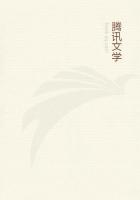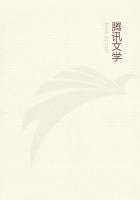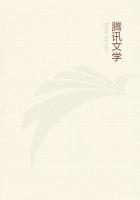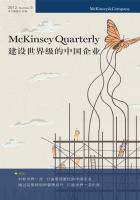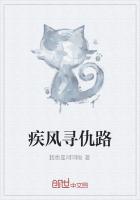O the tangles,more than Gordian,of gut on a windy day!Obitter east wind that bloweth down stream!O the young ducks that,swimming between us and the trout,contend with him for the blue duns in their season!O the hay grass behind us that entangles the hook!O the rocky wall that breaks it,the boughs that catch it;the drought that leaves the salmon-stream dry,the floods that fill it with turbid,impossible waters!Alas for the knot that breaks,and for the iron that bends;for the lost landing-net,and the gillie with the gaff that scrapes the fish!Izaak believed that fish could hear;if they can,their vocabulary must be full of strange oaths,for all anglers are not patient men.A malison on the trout that 'bulge'and 'tail,'on the salmon that 'jiggers,'or sulks,or lightly gambols over and under the line.These things,and many more,we anglers endure meekly,being patient men,and a light world fleers at us for our very virtue.
Izaak,of course,justifies us by the example of the primitive Christians,and,in the manner of the age,drowns opposition in a flood of erudition,out of place,but never pedantic;futile,yet diverting;erroneous,but not dull.
'God is said to have spoken to a fish,but never to a beast.'
There is a modern Greek phrase,'By the first word of God,and the second of the fish.'As for angling,'it is somewhat like poetry:men are to be born so';and many are born to be both rhymers and anglers.But,unlike many poets,the angler resembles 'the Adonis,or Darling of the Sea,so called because it is a loving and innocent fish,'and a peaceful;'and truly,I think most anglers are so disposed to most of mankind.'
Our Saviour's peculiar affection for fishermen is,of course,a powerful argument.And it is certain that Peter,James,and John made converts among the twelve,for 'the greater number of them were found together,fishing,by Jesus after His Resurrection.'That Amos was 'a good-natured,plain fisherman,'only Walton had faith enough to believe.He fixes gladly on mentions of hooks in the Bible,omitting Homer,and that excellent Theocritean dialogue of the two old anglers and the fish of gold,which would have delighted Izaak,had he known it;but he was no great scholar.'And let me tell you that in the Scripture,angling is always taken in the best sense,'though Izaak does not dwell on Tobias's enormous capture.So he ends with commendations of angling by Wotton,and Davors (Dennys,more probably)author of The Secrets of Angling (1613).To these we may add Wordsworth,Thomson,Scott,Hogg,Stoddart,and many minor poets who loved the music of the reel.
Izaak next illustrates his idea of becoming mirth,which excludes 'Scripture jests and lascivious jests,'both of them highly distasteful to anglers.Then he comes to practice,beginning with chub,for which I have never angled,but have taken them by misadventure,with a salmon fly.Thence we proceed to trout,and to the charming scene of the milkmaid and her songs by Raleigh and Marlowe,'I think much better than the strong lines that are now in fashion in this critical age,'for Walton,we have said,was the last of the Elizabethans and the new times were all for Waller and Dryden.
'Chevy Chace'and 'Johnny Armstrong'were dear to Walton as to Scott,but through a century these old favourites were to be neglected,save by Mr.Pepys and Addison.Indeed,there is no more curious proof of the great unhappy change then coming to make poetry a mechanic art,than the circumstance that Walton is much nearer to us,in his likings,than to the men between 1670and 1770.Gay was to sing of angling,but in 'the strong lines that are now in fashion.'All this while Piscator has been angling with worm and minnow to no purpose,though he picks up 'a trout will fill six reasonable bellies'in the evening.So we leave them,after their ale,in fresh sheets that smell of lavender.'Izaak's practical advice is not of much worth;we read him rather for sentences like this:'I'll tell you,scholar:when I sat last on this primrose bank,and looked down these meadows,I thought of them as Charles the Emperor did of the city of Florence,"that they were too pleasant to be looked upon,but only on holy-days."'He did not say,like Fox,when Burke spoke of 'a seat under a tree,with a friend,a bottle,and a book,''Why a book?'Izaak took his book with him--a practice in which,at least,I am fain to imitate this excellent old man.
As to salmon,Walton scarcely speaks a true word about their habits,except by accident.Concerning pike,he quotes the theory that they are bred by pickerel weed,only as what 'some think.'In describing the use of frogs as bait,he makes the famous,or infamous,remark,'Use him as though you loved him .that he may live the longer.'A bait-fisher MAY be a good man,as Izaak was,but it is easier for a camel to pass through the eye of a needle.As coarse fish are usually caught only with bait,I shall not follow Izaak on to this unholy and unfamiliar ground,wherein,none the less,grow flowers of Walton's fancy,and the songs of the old poets are heard.The Practical Angler,indeed,is a book to be marked with flowers,marsh marigolds and fritillaries,and petals of the yellow iris,for the whole provokes us to content,and whispers that word of the apostle,'Study to be quiet.'

